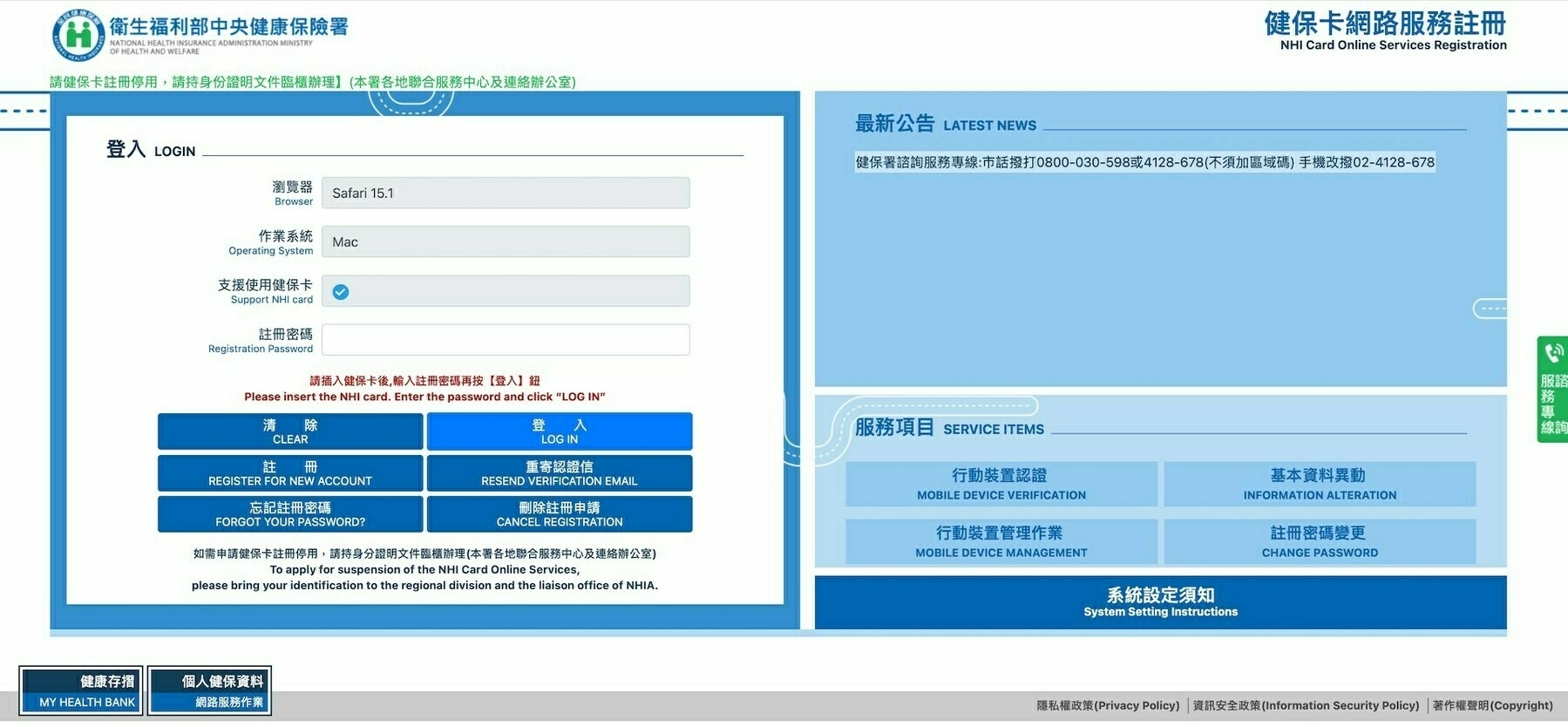Taiwan's electronic health records

It’s difficult to describe to friends and family in the USA how utterly broken the medical system is there. For many with decent insurance, there is little appreciation for how much better, fairer, and cheaper it could all be. Until you have experienced the Taiwan medical system, you realize that the US does not have a single system but rather an assortment of medical markets, broken ones at that. I can and will expound on this topic some other day.
But for now, my motivation for writing this brief entry is to express a bit of delight for today’s latest “hack” (and to praise the National Health Insurance Administration). Consider this bit of XML:
<?xml version=“1.0” encoding="utf–8”?>
<myhealthbank> <bdata>
<b1.1>A**********</b1.1>
<b1.2>20211029</b1.2>
<r0>【民眾下載健康存摺資料之聲明書】健康存摺有您的詳細就醫醫療資料,
下載後請妥善保管,資料如有需要轉交第三人或企業、公司使用,
應請自行評估風險及責任。提醒您:資料提供給第三人時請留意
是否只提供部分資料、並約定使用期間及日後可要求刪除資料的權利。 </r0>
<r1>
That’s the opening bit to my comprehensive health records detailing office visits, prescriptions filled at pharmacies, test results, etc. A log of every interaction with doctors, clinics, and hospitals over the years is available to me and my doctors. The data is available in various formats for human and computer consumption, and I can download it on demand by logging into my account on the NHI website.
Logging into the website is not a mere matter of username and password. Taiwan has put in place a system based on crypto smartcards. Ming Fu has one for interacting with government services and fulfilling regulatory requirements. And just about everyone living here has an NHI smart card. The embedded crypto chip provides a secure means to establish identity and authorization to access my records and NHI services. The same card serves me when visiting doctors and paying for services.
MSD
